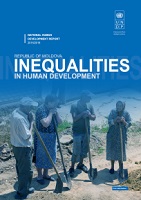
UNDP - HUMAN DEVELOPMENT REPORT 2016 – MOLDOWA. Unequalities in Human Development
Instead of an Abstract/Summary here, please refer to the Introduction PDF-file which includes the Executive Summary. Thank You.
More...We kindly inform you that, as long as the subject affiliation of our 300.000+ articles is in progress, you might get unsufficient or no results on your third level or second level search. In this case, please broaden your search criteria.

Instead of an Abstract/Summary here, please refer to the Introduction PDF-file which includes the Executive Summary. Thank You.
More...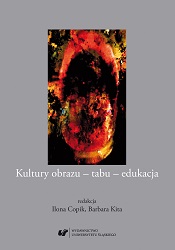
The paper aims at tackling the problem which manifests itself intensely in new media art, interactive art, and bioart in particular; precisely, as artists challenge various barriers and limits affecting social, spiritual, and bodily life of the contemporary human being, the recipient‑interactor, paradoxically, tends to long for taboo, sacrum, and beauty. Consequently, diverse strategies and activities undertaken by the cultural institutions – on the example of Ars Electronica festival in Linz – are analysed. Following this, the paper poses a hypothesis that what is in fact tabooed is the role of the organisation introducing new media trends and holding events concerning them; Ars Electronica is not only an institution oriented at research, and cultural and artistic practices, but also one which serves educational, entertaining, and business purposes. In fact, it is a gatekeeper transmitting messages, a stimulant to investigations and artistic activities, and a trendsetter cultivating pro‑technological attitudes and mass fashions, such as: participating in social media, cyberactivism, accepting technological extensions of the body and genetic modifications. The paper ponders upon the possibility of applying the agenda‑setting theory to the institutions which operate on the intersection of art, science, education, industry, and promotion of new technologies. The analysis proposed – concerning cultural taboo – is also broadly related to the issues of the anthropological perspective and understanding taboos in oral cultures, since it is a taboo which provides a significant context for contemporary cyberculture; a taboo, after all, is perceived as secondary orality, to use Walter J. Ong’s term.
More...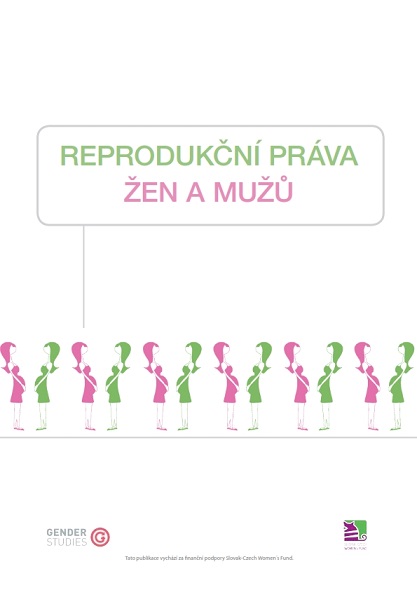
Reprodukční práva žen a mužů znamenají, že jakákoli osoba nebo pár se může svobodně a odpovědně rozhodnout kolik, v jakém intervalu, kdy a zda mít děti. Zahrnují také možnost rozhodnout se o podstoupení či nepodstoupení interrupce. Nedílnou součástí je právo na informace a prostředky, které přispívají k sexuálnímu a reprodukčnímu zdraví žen i mužů. Jak jsou reprodukční práva ošetřena v mezinárodních dohodách? Právo na reprodukční zdraví, plánované rodičovství, na informace a vzdělávaní v oblasti reprodukčních práv je zakotveno v řadě mezinárodních dokumentů a dohod. Jedním z nejzásadnějších přelomů byla v této souvislosti Mezinárodní konference o populaci a rozvoji, jež se konala v Káhiře v roce 1994. Zúčastněné vlády se shodly na důležitosti všeobecného přístupu ke službám zajišťujícím reprodukční zdraví. Zde i na dalších mezinárodních kongresech (jako např. na 4. konferenci o ženách v Pekingu) byl rovněž defi nován obsah pojmu reprodukční práva: právo rozhodnout se o tom, zda, kolik a kdy mít děti, svobodně se rozhodnout o manželství a založení rodiny atd. [...]
More...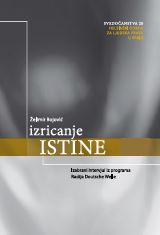
Many books have already been written about how Serbia reacted to the challenge at the beginning of the Third Millennium. In front of the reader is a book that stands out from the crowd because of who, when and what is said in it. On the airwaves of Radio Deutsche Welle, 149 intellectuals, predominantly of Serbian nationality, but also foreigners who deal with Serbia professionally, spoke in 169 interviews about the situation in Serbia mainly after October 5, 2000. By definition, the critical, individual opinion of economists, historians, doctors, diplomats, and artists rounded off the worrying picture of the whole. Speaking independently of each other, the interlocutors of Radio Deutsche Welle reveal the reality of Serbia, which is significantly different from the official reality. Marked as a peaceful revolution, as a new beginning for Serbia, as its historic chance to stop wasting time, with the undivided support of the European Union and the United States of America, October 5, 2000, when the consensual autocrat Slobodan Milošević was removed, was ambiguous. the event. Great hopes were raised; created unrealistic but explainable expectations; the apparent unity of intentions of the main actors was achieved. But, by itself, October 5, 2000 did not represent the balance of what happened in the previous 15 years, and even less a clear projection of Serbia in the future. The attempt made by Prime Minister Zoran Đinđić in this direction was brutally stopped by his murder. Legalism was the new name for the large-state project of the 1990s, which led Serbia to disaster, and the Serbian national and state issue to a dead end. The dismantling of Slobodan Milošević's regime could only occur as a consequence of discontinuity with that policy. … Collected in this book, they represent an important testimony that binds the ruling structures in Serbia. The reality cannot be ignored if there is a political will to change it and to stop the regression of Serbia.
More...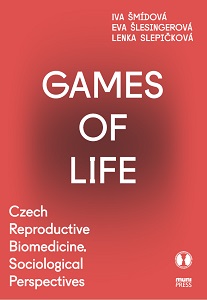
In the following chapter, the conceptual tools and analytical framework mentioned in the previous text – mainly biopolitics/ biopower and the idea of life itself – will be reflected. Our analysis of Czech reproductive medicine presupposes a more extensive understanding of the social forces and forms of power (governmentality) which are defining, governing, and naming human embodiment in society and politics. Therefore, the concepts will be analysed in connection with social processes, such as the post/genomization of society and broader biosocial changes in our biosocial societies.
More...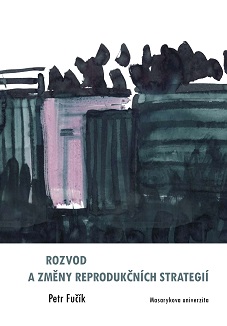
Among others, the modernization of intimate relationships also offers the possibility to step out from an unsatisfactory marriage. The prevalence of divorce culture is a relatively new phenomenon gaining its importance during the recent decades and having potential consequences on the social reproduction mechanisms. The theoretical question on the most general level is phrased as follows: how will the mechanisms of social reproduction differ when the possibility of legal separation creates a growing category of people forced to redefine their life courses and reproduction strategies? What new reproduction mechanisms will emerge when a considerable proportion of children are socialized in one-parent families or step-families? The empirical enquiry is driven by the logic of sequential explanatory mixed-methods design. The first part of the analysis complies with the quantitative mode of description by means of secondary data analysis, and focuses on the description of various aspects of post-divorce situation in the Czech Republic such as the economic situation of divorced people, maternal trajectories of women experiencing divorce and their re-partnering. At the same time, it explores the effectiveness of the intergenerational transmission of educational attainment in divorced families compared with normal intact ones. Given the research approach based on the mixed-methods design, the qualitative study helps us to deepen the interpretation of the patterns found in the previous quantitative analysis. At this stage, we enrich our data with qualitative in-depth interviews. In accordance with the logic of grounded theory, we come to the end of the work with a theoretical model that tries to explain the changes in the reproduction strategies through the creation of a specific type of the individualization habitus and re-constructive components of the reproduction strategies.
More...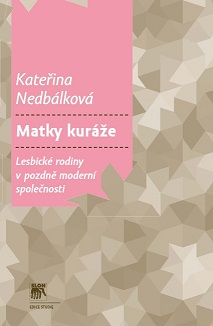
The book deals with the topic of gay and lesbian families. It offers a critical review of selected sociological theories related to family and sexuality. It also summarises the findings of foreign research that has been examining gay and lesbian parenting since the 1960s. The heart of the book is a four-year ethnographic study based on interviews and observations in Czech lesbian families. The book does not answer the question whether lesbian parenting is good or bad. Instead, it puts it in the context of a more general discussion about the family and its transformations in a late modern society.
More...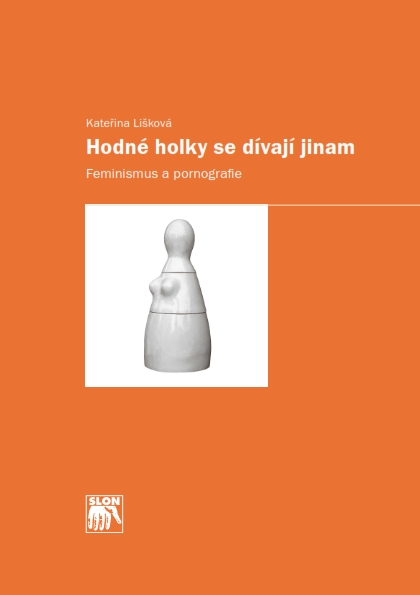
The book is a sociological analysis of the anti-pornographic feminist discourse. It focuses both on the concept of gender and sexuality and on the understanding of performativity in the context of symbolic power of speech. The author critically analyses the concept of gender and its connection to sexuality as raised (both explicitly and implicitly) by anti-pornographic feminism. She also deals with the anti-pornographic discourse in contemporary Czech pornography-related works of sexology and criminology. The last part of the book critically analyses pornography as a performative expression, assessing the benefits and limitations of this approach.
More...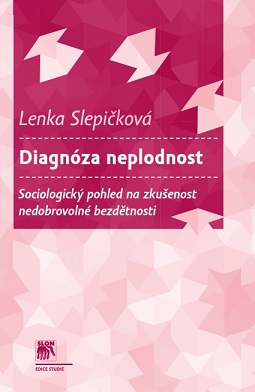
The book examines infertility both as a medical condition and as a specific social status. The author identifies the relevance of infertility in life biographies in the context of Czech society which highly values parenting but has one of the lowest birth-rates in Europe. She is interested in how people are adapting to this situation of conflict between their life plans and physical and social barriers. The book contains four chapters of in-depth interviews and analyses. Each chapter deals with one particular dimension of experience with infertility and its treatment.
More...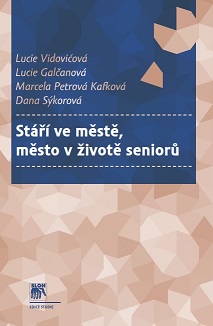
The book focuses on the links between aging and urbanisation, precisely on the everyday life of an aging population of larger cities in the context of socio-spatial processes of regeneration and gentrification. What is the effect of changing external environment on the experience of aging? What is the impact of urban dynamics on the involvement of the elderly in social structures? Are larger Czech cities senior-friendly? The authors analyse the data obtained through mixed-method research (a standardised survey among citizens over 60 from larger cities combined with a qualitative research in focus groups and individual in-depth interviews).
More...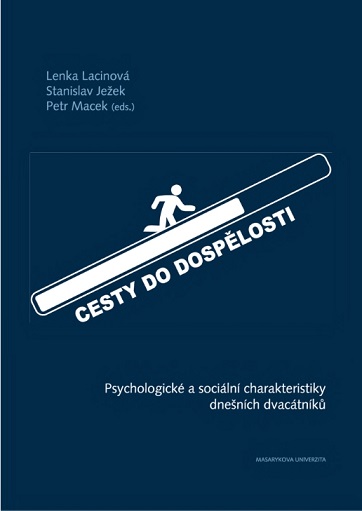
In the course of last five years, a team of psychologists from the Institute for Children, Youth and Family Research at the Faculty of Social Studies has observed a sample of over thousand people born in 1990-1994. If you are interested how these young adults think about themselves and about the world, where and with whom they live and what relations they have, you may find the answers here. The book is thematically complex and offers a probe into novel social-psychological phenomena, such as the identity of young Vietnamese adults in Czechia or the phenomenon of “friendship with benefits”.
More...
Přechod z dospívání do dospělosti může nabývat mnoha podob se značně odlišnou délkou. V jednom extrému může mít podobu relativně rychlé a razantní změny navazující na dosažení plnoletosti, kdy během několika let mladý člověk dokončí studia a získá perspektivní práci, vstoupí do manželství, narodí se mu první dítě a založí vlastní domácnost. V druhém extrému, pokud to okolnosti dovolí, může mladý člověk usilovat nejprve o získání řady zkušeností, které mu umožní ona důležitá, zavazující či obtížně zvrátitelná rozhodnutí dělat informované, s širokým vědomím jejich konsekvencí, lepší znalostí sebe sama a také s větší jistotou a sebedůvěrou. Takto mohou být důležitá rozhodnutí, závazky, odkládána do okamžiku, než se na ně bude mladý člověk „cítiť‘, což může vyplnit i celou třetí dekádu života.
More...
Dospělost je v mnoha ohledech spjata se schopností samostatně se rozhodovat, spolehnout se na sebe a svůj úsudek, s přijetím zodpovědnosti za své chování, rozhodnutí, postoje a přesvědčení. Trochu nadneseně řečeno, být dospělý znamená přijmout autorství vlastních činů, činit důležitá rozhodnutí, z nichž některá mají celoživotní dopad, a přijímat zodpovědnosti a závazky, které z nich vyplývají. Z jiného úhlu pohledu to také znamená uvažovat o sobě samém a o svém životě v dlouhodobější perspektivě, mít své osobní plány a cíle — co považuji ve svém životě za důležité a k čemu chci směřovat. Z pohledu vývojové psychologie se tu propojují dvě ústřední témata (či vývojové úkoly), které vstup do dospělosti definují: téma autonomie a identity.
More...
Vztahy s rodiči a vztahy v rodině mají pro mladé lidi nepochybně zásadní vliv na cestu do jejich vlastní dospělosti. Jedná se přitom jak o aktuální vztahy v období vynořující se dospělosti, tak rovněž o dlouhodobou zkušenost z předchozího vývoje. Rodiče bývají obvykle těmi nej bližšími lidmi, od nichž se už od prvních let života dítě bezděčně i záměrně učí, jak se dospělý člověk chová, jaké na sebe bere role, za co si bere zodpovědnost, jaké normy a hodnoty jsou v jeho životě důležité, co činí dospělého šťastným a spokojeným či naopak nešťastným a zklamaným. Přes zjevnou důležitost rodičů se jim jejich dospívající děti na cestě do dospělosti na určitou dobu pocitově a mentálně spíše vzdalují, ve snaze nalézt a naplnit svou novou identitu jako dospělého člověka. Tento proces vnějšího a vnitřního odpoutávání od rodičů však neznamená ztrátu vztahů, respektive snížení hodnoty či kvality vztahů s nimi.
More...
Partnerské vztahy patří svým významem mezi zásadní témata řešená mladými lidmi. Důležitost tématu je nesporná, neboť partnerská zkušenost má signifikantní a dlouhodobý dopad na individuální vývoj (Gala & Kapadia, 2013). Koncept vynořující se dospělosti pokládají Meier a Allen (2008) za výhodnou perspektivu, s jejíž pomocí lze podobě a vývoji partnerských vztahů v období třetí dekády lidského života v současnosti lépe porozumět. Skutečnost, že oproti minulosti mají mladí lidé více prostoru, času a společenského souhlasu ke vstupu do vyššího počtu partnerských vztahů, může být chápána jako jeden z aspektů charakteristik vynořující se dospělosti — období zaměřeného na sebe (setf-focused) a období prohlubujícího exploraci vlastní identity (identity exploration). Zdá se tedy, že bohatší partnerské zkušenosti mohou napomáhat při exploraci emocionální a fyzické intimity.
More...
Termín „přátelé s benefity” (friends with benefits — FWB) se začal objevovat v médiích relativně nedávno. O FWB lze mluvit také jako o jednom z typů vztahů spadajících do kategorie nezávazných sexuálních vztahů (casual sex relationships). Jako další pojmenování a typy lze uvést například one night stands, booty calls, fuck buddies. Jednotlivé typy nezávazných sexuálních vztahů pak mohou být definovány na základě toho, kde se nacházejí na kontinuu různých vztahových charakteristik, jako je frekvence setkávání, typ kontaktu (sex versus sociální kontakt), přátelství, sebeodhalování a diskuse o vztahu (Wentland & Reissing, 2011). Vztah FWB lze definovat jako vztah mezi přáteli, který obsahuje také společnou sexuální aktivitu, ale zároveň jej aktéři tohoto vztahu nedefinují jako vztah romantický/partnerský (Hughes, Morrison, & Asada, 2005).
More...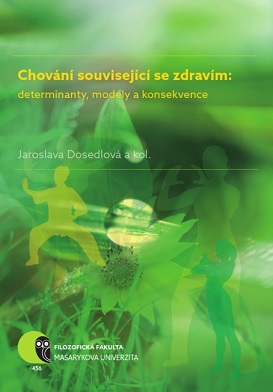
The monograph summarizes the main outputs of the research project “Health-promoting and Health-threatening Behavior: Determinants, Models, and Consequences”. It integrates five studies divided into individual chapters on the issue of health-related behavior and its relation to personality, constructs of optimism and pessimism, hope, ontogeny, and neuropsychological phenomena. The presented conclusions contribute not only to a deeper theoretical understanding of the examined relations, but also to practical support of readers’ self-regulation mechanisms, which consequently help them to take better care of their own health. The publication is intended for the professional public, thematically addresses primarily professionals and students in psychology, health, education and other social sciences, which deal with issues closely related to human health problems.
More...
Úryvky reálných přátelských rozhovorů z poslední doby… Všichni vedeme podobné rozhovory s našimi blízkými, s přáteli i v rámci běžné konverzace, všichni nějakým způsobem reflektujeme i vlastní zdravotní stav a jeho případné změny k lepšímu či horšímu. Zdraví, fyzické i psychické, je základní podmínkou naší výkonnosti, otevřených perspektiv a do značné míry i spokojenosti. V současné euroamerické společnosti je v posledních letech vyzdvihována především aktivní péče o zdraví, poněvadž právě zdravý životní styl vykazuje v realizovaných výzkumných studiích přímou souvislost s délkou dožití i s délkou dožití ve zdraví. McGinnis a Foege (1993) uvádějí, že 50 % případů úmrtí vlivem 10 nejrozšířenějších příčin smrti úzce souvisí s chováním ohrožujícím zdraví. Současná psychologie zdraví proto sleduje celou řadu faktorů, které ve vzájemných vztazích ovlivňují to, zda člověk onemocní a jakým způsobem svůj zdravotní stav hodnotí, a mapuje i faktory, v nichž se odrážejí stěžejní odlišnosti v míře aktivity, kterou lidé do péče o své zdraví investují.
More...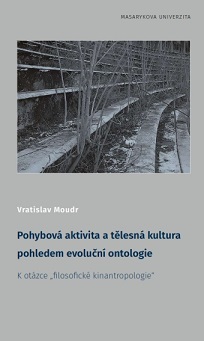
Evolutionary ontology claims that culture as an open dynamic system destructs system of nature (biosphere) which is wider and older than culture. Culture must gain its energy, space and matter only through destruction and destabilisation of biosphere. The very existence of humankind (and of culture too) is threatened by successful evolution of sociocultural system. Personal activity of man so can be seen as participation on escatation of conflict between nature and culture. The flow of energy, matter and information is just mediated by human aktivity. Therefore we can understand to intentional activities of man in culture as artificial culturaly oriented processes, which are components of “autopoietic” metabolism of culture that is now highly destructive for nature and society. Aim of this monograph is thus present evolutionary ontology as fruitful theoretical point of view in the field of philosophy of sport. Author reflects on activities of man and its distinctive forms – physical training and sport exercising. He analyzes sociocultural system of physical culture, searchs for its function (identity) and its relations to culture, nature and human. Text is focused mainly on sociocultural orientation of human activities. Its autor also outlines where these activities should be oriented from the evolutionary ontological point of view.
More...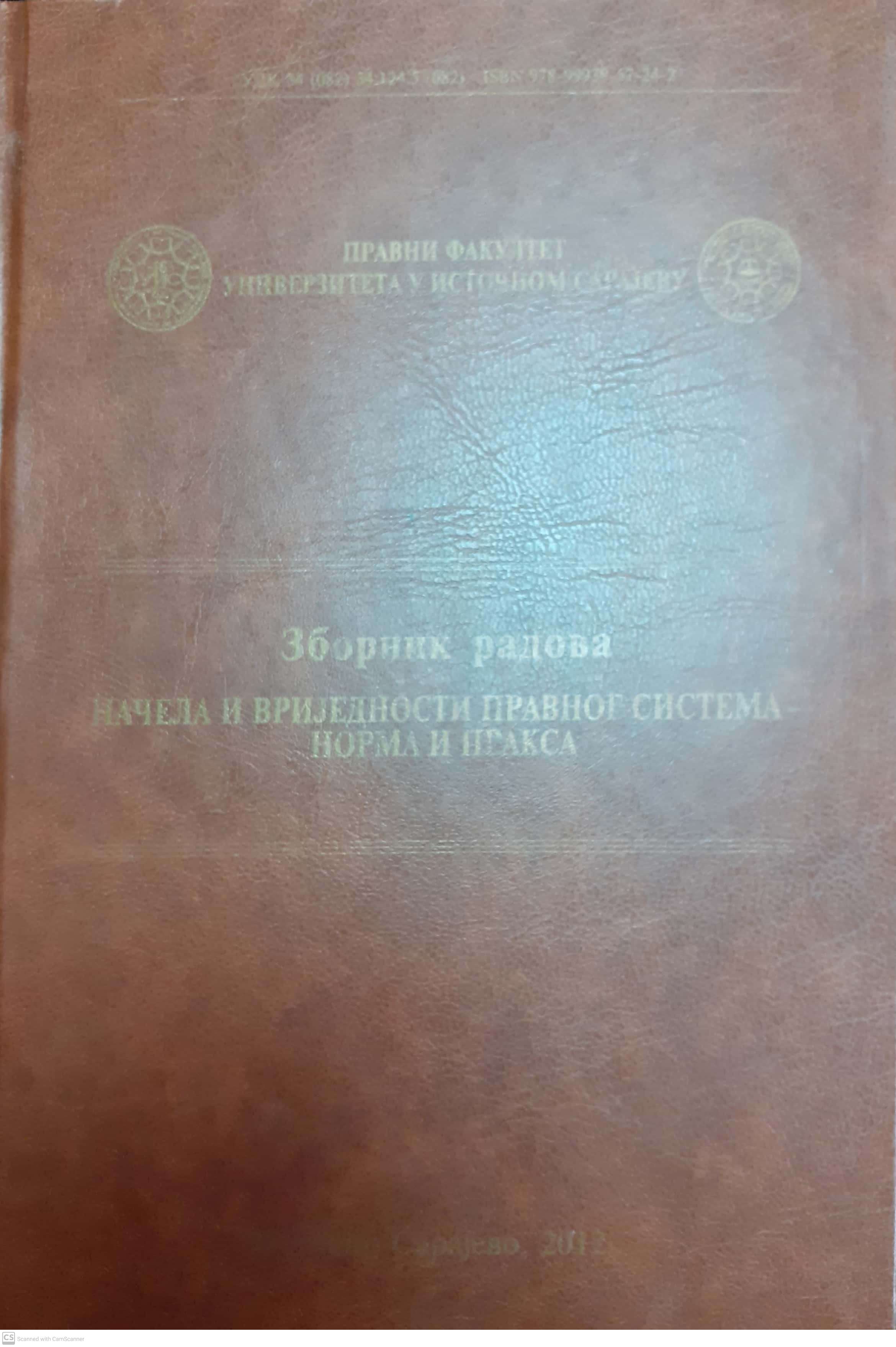
Biotechnology is a complex technology representing a sum of cellular and bi-molecular processes created in order to solve problems in the area of human health, agriculture, food and environment. Modern biotechnology includes the area of genetic engineering and cloning. While the cloning method presents a reproduction without fertilization, applied both to animals and man, used for diagnostic and therapeutic purposes, genetic engineering is a technique that is performed as planned clipping of genes perceived as a bearer of organism characteristics and its transplanting into another organism. The legal framework for protection of above mentioned patent for a biotechnological invention is given by Biotechnology Directive of the EU. The national patent rules are harmonized with the EU Directive. The achievements of biotechnology are the base for understanding, diagnosis and treatment of human diseases, but also a good base for better understanding of medicine. Unfortunately, there are always two sides to a coin. For example Injecting human genes into the pig embryo, in order to achieve the faster growth of the aforementioned animal, created transgenic pigs „freak“, because the human gene caused changes in metabolism in an unexpected way. The abuses of this kind can lead to various risks to human health. Today, patents in biotechnology are the real challenges for patent laws that have to adjust to rapid changes.
More...